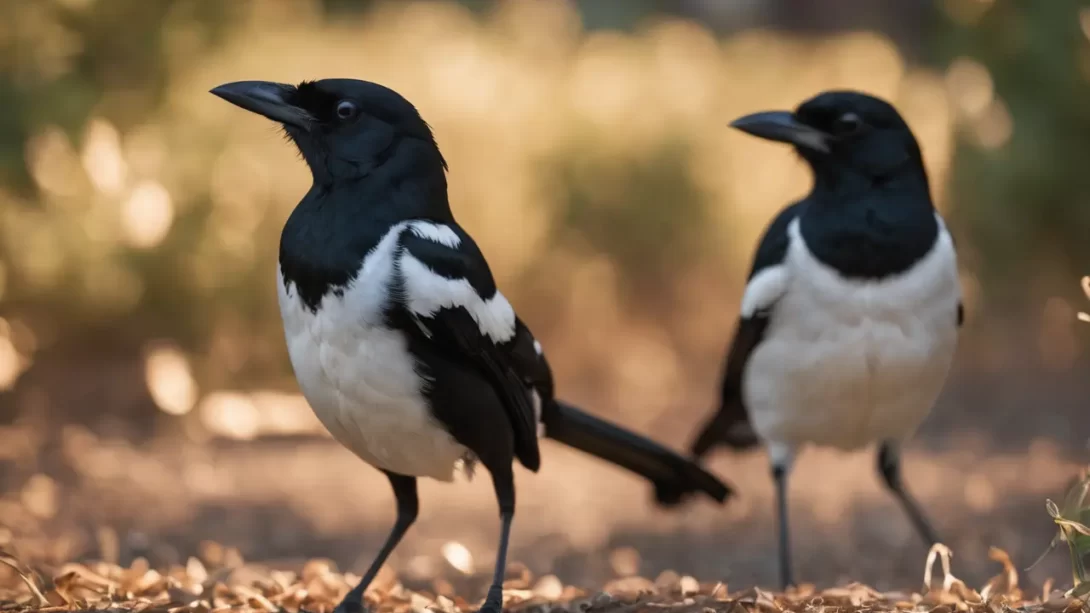Magpies, known for their striking black and white plumage and intelligent nature, are often admired but can become pests in gardens and urban areas. They may disrupt smaller birds, damage gardens, or cause noise. This article focuses on humane and legal methods to deter magpies, ensuring wildlife protection laws are respected.
Magpies
Magpies are highly intelligent birds with complex behaviors. They are often attracted to shiny objects, can become territorial, especially during nesting season, and are drawn to areas with abundant food sources. Understanding these behaviors is crucial in implementing effective deterrence strategies.
Legal Considerations
Before attempting to deter magpies, it’s important to understand the legal protections they have. Many countries have specific laws governing the treatment of wild birds, including magpies. It’s essential to use methods that are humane and legally compliant to avoid penalties and ensure ethical treatment of wildlife.
Natural Deterrents
Employing natural deterrents is a humane way to discourage magpies from frequenting your area. Start by removing potential food sources. Secure your garbage bins and avoid leaving pet food outdoors. If you have a bird feeder, consider designs that are less accessible to larger birds like magpies. Additionally, keeping your garden clean and free from food scraps can make it less inviting to these birds.
Scare Tactics
Magpies, like many birds, can be deterred using visual and auditory scare tactics. Visual deterrents include objects that reflect light, such as old CDs, aluminum foil strips, or specially designed reflective bird diverters. These create random patterns of light and movement that can discourage magpies. Auditory deterrents can range from simple wind chimes to more sophisticated devices that emit distress calls or predator noises. However, magpies are intelligent and may become accustomed to these tactics over time, so it’s important to vary the methods.
Physical Barriers
Implementing physical barriers can be effective in preventing magpies from accessing certain areas. If magpies are targeting your fruit trees or vegetable garden, consider using bird netting to protect these areas. Spikes on fences and ledges can also deter magpies from perching or nesting. When installing these barriers, it’s vital to ensure they are safe and do not pose a risk of injury to the birds or other wildlife.
Habitat Modification
Modifying the habitat around your property can make it less appealing to magpies. This involves landscaping and garden management strategies that discourage magpies from settling. Planting dense shrubbery or thorny plants can deter them from nesting, as magpies prefer open areas for easy access. Additionally, maintaining a tidy yard by regularly pruning trees and shrubs can reduce the attractive perching spots for magpies.
Chemical Repellents
The use of chemical repellents should be a last resort and must be done in compliance with local wildlife laws. Certain non-toxic, bird-specific repellents can be applied to gardens and lawns. These products usually work by creating an unpleasant environment for the magpies without causing them harm. It’s important to follow the manufacturer’s instructions closely and consider the potential impact on other wildlife and pets.
When to Seek Professional Help
If the magpie problem persists despite your efforts, it may be time to seek professional help. Wildlife control professionals can assess the situation and implement effective, humane strategies to deter magpies. They are knowledgeable about local wildlife laws and can ensure that all actions taken are legal and ethical. When selecting a professional, look for someone with experience in bird control and a good reputation for humane practices.
Conclusion
Dealing with magpies requires a balance of understanding their behavior, employing humane deterrence methods, and respecting wildlife laws. Natural deterrents, habitat modification, and, if necessary, professional intervention can effectively reduce the presence of magpies. Remember, the goal is to coexist peacefully with these intelligent birds, ensuring a harmonious environment for all.



